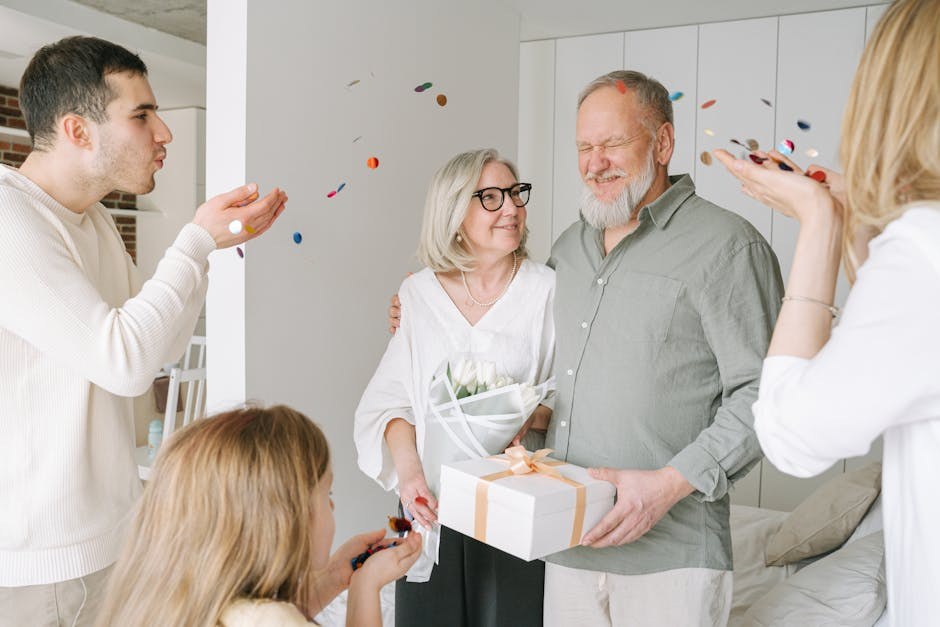On the surface, nobody imagines choosing a partner who puts themselves first, demands endless praise, and struggles to care about anyone else’s feelings. Yet time and again, people end up drawn to narcissists – not because they want pain, but because the early experience can feel intoxicating. The first act is dazzling, the mask is polished, and the signals seem to promise something rare. Understanding that pull does not excuse harmful behavior; it simply explains why sensible, caring people can be captivated before they realize what is happening.
What narcissism looks like in plain terms
In everyday language, narcissism is a persistent pattern in which someone elevates their own importance and disregards the emotional reality of others. The person at the center of this pattern loudly or quietly insists they are special, expects validation as a given, and treats empathy as optional. To outsiders, that can resemble unshakeable confidence. But when you look more closely, the shine is a performance – a carefully arranged front that protects a fragile sense of self and a need to control the narrative.
Healthy confidence is steady and flexible. It does not require an audience, and it does not demand that other people shrink for one person to feel tall. Narcissists often imitate that poise at first, but the imitation has tells: cutting remarks disguised as jokes, a habit of shifting blame, and a pattern of attention that floods you with warmth one day and withholds it the next. The contrast is powerful – and that contrast is part of what draws people in.

Confidence versus the performance of confidence
It helps to separate two look-alike qualities. A confident partner takes up space without stealing yours. They can admit mistakes and still feel worthy. Narcissists, by contrast, rely on the room’s applause; if it quiets, they turn up the volume. When their image is challenged, they react defensively – sometimes with anger, sometimes with ice. The result is a relationship rhythm that keeps many people on their toes. You catch a glimpse of who you hoped they were, and you chase the glimpse even when it keeps sliding out of reach.
Why people fall for them
There is no single reason people fall for narcissists. Instead, there is a cluster of dynamics that, taken together, make the early stages feel exciting and meaningful. The following themes capture how that spell is cast and why it can be so hard to break.
-
They are not cut from one mold – Narcissism sits on a spectrum, and narcissists do not all behave the same way. Some are overtly grand; others are quieter and trade in self-pity. A few can function well enough in daily life to pass for considerate. When someone’s difficult traits are mixed with moments of sweetness or charm, it’s easy to explain away the rest. You tell yourself you’re seeing “the real them” and that the unpleasant moments are the exception. That ambiguity lets narcissists move easily through first impressions.

-
Old patterns feel like home – Many people repeat what they learned early. If you grew up around someone who demanded attention and made love conditional, a partner with similar behavior can feel familiar. Familiar does not mean healthy, but it does feel known – and known can feel safe at first. Narcissists benefit from that familiarity because the dance steps are already in your body: you anticipate moods, you work to please, you minimize your needs. Without noticing, you slide into a role that once kept you afloat.
-
The first act is meticulously staged – Narcissists understand that early impressions are everything. In the opening chapter, they are attentive, curious, and skilled at mirroring your interests. The mask is bright, and the script is flattering. Red flags rarely wave on the first date; they appear later in the details – a story that shifts, a joke at your expense, a refusal to apologize. By then, you may already be invested. The contrast between the charming beginning and the later digs creates confusion, and confusion leads many people to give yet another chance.
-
Charm arrives with gifts and grand gestures – The courtship can look like a romance film: constant messages, extravagant plans, dramatic affection. You are told you are exceptional, that fate has intervened, that no one has ever “seen” them like you do. Sometimes there are expensive presents or sweeping declarations that feel too big for the amount of time you’ve known each other. It feels like being chosen. For narcissists, that intensity serves a purpose – it secures closeness quickly, so later shifts can be justified by pointing back to the opening fireworks.

-
Boldness is frequently mistaken for depth – A person who strides into a room, speaks without hesitation, and acts as though success is inevitable can read as magnetic. Many people are drawn to that certainty, especially if they themselves are unsure. Narcissists understand this psychology and lean into it. But confidence that builds trust is steady and generous; it does not require cutting others down. When the boldness mainly spotlights the self and sidelines everyone else, you are not seeing depth – you are watching a performance polished to dazzle.
-
They practice the game – Experience makes experts. Over time, narcissists refine exactly what to say, when to delay a reply, and how to mix warmth with distance to keep interest high. Think of it as a strategy sport: the goal is not shared growth but winning attention. Because most people date in good faith, they are not prepared for someone playing a different game. That mismatch gives narcissists an edge; they treat connection as a campaign, while you assume you’re building something mutual.
-
High drama can feel like high passion – Some people equate intensity with importance. If the relationship swings between euphoric closeness and sudden coldness, the highs feel higher. The roller coaster becomes proof that something profound is happening. In reality, the cycle simply keeps your nervous system on alert. Narcissists thrive in that climate because it keeps the focus on their moods and needs. The constant turbulence crowds out your intuition, and when calm finally comes, it feels like relief – which you interpret as love.
-
The physical chemistry is often intense – Many people describe early intimacy as explosive. Narcissists pour energy into the bedroom the same way they pour energy into the opening chapter: with intensity and performance. That can be thrilling, especially if previous relationships felt muted. But excitement without empathy eventually leaves a bruise. When the afterglow doesn’t include care, consideration, or curiosity about your experience, the heat becomes a hook – and the hook keeps you attached while your feelings go unheard.
-
The lifestyle looks like a dream – Good looks, social status, and symbols of success can create a halo that is hard to resist. If you value ambition or aesthetic polish, meeting someone who embodies those values can be intoxicating. Narcissists often curate an image that broadcasts exactly that: a winning life. There is nothing wrong with appreciating beauty or achievement; the trouble begins when appearance outweighs substance, and shiny surfaces distract from repeated disregard of your boundaries.
-
Push-pull attention keeps you guessing – One week you are the center of their world; the next week you are somehow “too sensitive” or “needy.” Promises soften, stories change, and praise turns into criticism. That hot-and-cold pattern is not random. It teaches you to work harder for closeness and to doubt your perceptions. Narcissists benefit from the uncertainty because it keeps you focused on regaining yesterday’s magic instead of noticing today’s disrespect. The very inconsistency becomes the glue.
-
The hopeful belief in change – Many caring people think: “If I love them well enough, they will soften,” or “If I adjust, we’ll finally click.” It is humane to hope. But lasting change requires insight and motivation from the person doing the hurting. Narcissists rarely feel compelled to alter patterns that are working for them. When apologies arrive, they are often tactical – a brief detour that leads back to the same road. Your willingness to carry the entire project keeps the structure standing.
-
We are human, and humans want to connect – No one is immune to flattery, attention, or the dream of being understood. People fall for narcissists for many overlapping reasons: timing, loneliness, chemistry, familiarity, or simple optimism. Self-compassion matters here. It is possible to be wise and still be swept up. What matters most is what you do when patterns become clear – noticing the red flags, believing what you see, and choosing your well-being even when the story you were sold is hard to set down.
The mask, the reveal, and the slow shift
At the beginning, narcissists seem to study you in the best way – they remember small details, they echo your tastes, they show up with perfect timing. That mirroring creates a sense of rare compatibility. After closeness is secured, the mirror tilts. Humor begins to land at your expense. Your accomplishments somehow become less important than their stories. If you bring up hurt, the discussion circles back to how difficult it is for them to be misunderstood. Over time, you do more apologizing, more smoothing, more shrinking. The comparison between the early “ideal” and the later critique keeps you striving for the version of the relationship you were promised.
Because that early portrait felt so right, many people cling to it – even when daily life tells a different tale. Narcissists point back to the opening gestures as proof of devotion: the flowers, the surprise trips, the stream of compliments. Those memories are real, but they were also part of a plan. When you recognize that, the comments that once felt personal – “You’re my soulmate,” “No one gets me like you” – make a different kind of sense. They were lines from a well-rehearsed script, and narcissists have rehearsed it for a long time.
How the confusion takes root
Confusion is not accidental. It is produced by contradictions that never resolve: generosity paired with contempt, praise paired with criticism, closeness paired with withdrawal. Many people try to “solve” the contradictions by being better partners – explaining more clearly, accommodating more thoroughly, and waiting more patiently. Meanwhile, the behavior that hurts keeps repeating. Narcissists benefit from that loop because the spotlight stays where they want it – on them – while you do the labor of making sense of the senseless.
Part of the difficulty is that narcissists are skilled observers. They notice what you care about and what you fear. If you value kindness, they talk about kindness. If you crave stability, they describe a future in vivid color. If you fear abandonment, they promise permanence. None of those promises cost them anything in the short term. The cost arrives later, when words and actions fail to match, and you are left holding commitments that never turn into consistent behavior.
What healthy confidence does differently
Healthy partners invite you to keep your shape. They can apologize without collapsing. They can celebrate your wins without competing. They do not need you to be small so that they can feel big. Narcissists often do the opposite. They interrupt, they correct unnecessarily, or they escalate when their image is questioned. Over time, you may find yourself walking on eggshells. Noticing that difference – between confident steadiness and narcissistic performance – helps you understand why the same traits that first attracted you now feel heavy.
Recognizing the red flags sooner
Awareness is not about suspicion; it is about pacing. When the beginning feels like a whirlwind, slow down. Pay attention to how they handle “no,” how they talk about past relationships, and whether curiosity flows both ways. Do they laugh at your dreams or nourish them? Do they make small repairs after missteps, or do they make you responsible for every misunderstanding? Patterns tell the story. When the story is mainly about them, narcissists thrive – and you disappear in the margins.
If you notice the push-pull cycle starting, name it. If apologies arrive without change, believe the behavior more than the words. And if the early fireworks seem out of proportion to the time you’ve known each other, consider why the pace is so fast. None of this requires cynicism; it requires care. Narcissists count on speed and spectacle. You can counter with attention and time.
Giving yourself grace
It bears repeating: people fall for narcissists because people want connection. You are allowed to be dazzled. You are allowed to hope. You are allowed to learn. When you recognize that the charm was a cloak and the boldness was a show, you do not need to carry shame – you can carry wisdom. That wisdom includes clarity about what you deserve: reciprocity, kindness, and the kind of confidence that leaves room for two full people in the same story.
If you have been caught in this pattern, it is not proof that you are foolish. It is proof that you are human. Stepping back does not erase the good memories; it simply refuses to let the good moments excuse the harm. Narcissists will always excel at the opening act. Your power is deciding whether they get to write the rest of the play.